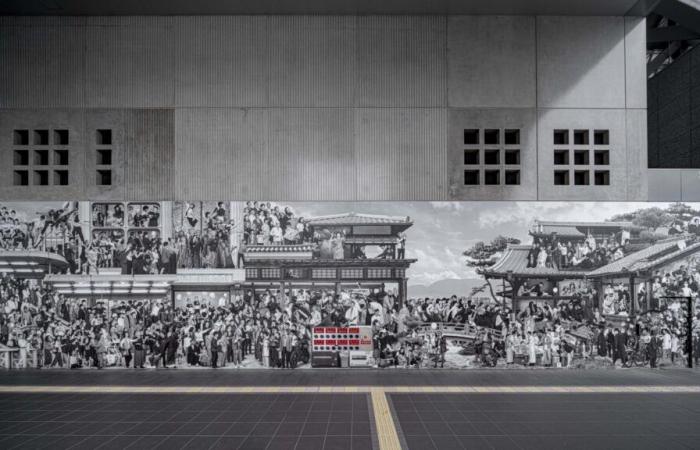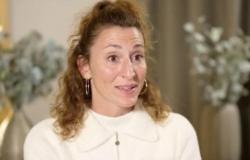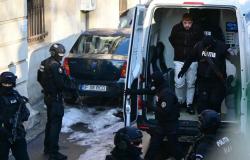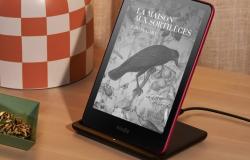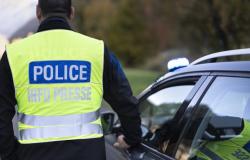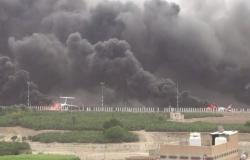Kyoto, Japan cultural metropolis, where a famous saying says: “Throws up a random stone, and you touch a teacher. But looking at the fresco made by the artist JR, this stone could be much more widely struck. We see Geikos, masters of tea, craftsmen, drag queens, musicians, schoolchildren, politicians …, so many faces, stories and destinies which, together, form the living and vibrant portrait of this constantly effervescence city.
JR recognizes it, “It is a city next to which I have passed for a long time. So what better way to remedy it than to make it the new theater of his famous ‘Chronicles’ series, which he has been carrying out for almost ten years? From Clichy-Montfermeil to Miami, via New York, San Francisco and Havana These projects are each time “an extraordinary opportunity to discover the city intimately, in contact with its people. Because for several weeks, JR and his teams set up mobile photo studios in several key places. Here, thanks to the support of kyotography, they have selected eight different places, from its roar heart that is the station, to its more secret corners and its wooded ends.
One by one, each of these 505 people, was immortalized on a green background, respecting each time the way it wanted to be represented. Walking, singing, raising their arms, or simply contemplating. Each portrait was then integrated into a giant collage. The figures thus printed, cut, create unexpected interactions, such as that of the conversing mayor with strangers. The background, a collage of architectural elements of Kyoto, links the spectators to the city and its multiple facets, past and modern. The result is displayed on the outdoor facade of the station, a monumental wall of 22.55 meters by 5.
That the work be presented in this nerve point of this world city without airport, was not chosen at random by JR: “It symbolizes the front door of Kyoto, where the trip begins. It is also a place of brewing, where social circles intersect in an uninterrupted flow. Each day, more than 700,000 travelers pass through it – so many looks likely to land on this immense fresco, a sort of collective and exciting Charlie “. Except that here, it is not a question of finding a particular person, but rather of observing a silhouette after the other, to try to grasp something of the soul of the city.
As Paul Klee said, “Art does not reproduce reality, it makes visible. This is precisely what this protean artist seeks to accomplish, who uses large -scale photography to highlight communities, often neglected, and thus arouse whether it is dialogue, interest or reflection. We think of its realization in the favelas of Brazil, on the border between Palestine and Israel, or closer to Kyoto still, in the Tohoku region, struck in 2011 by a devastating earthquake and tsunami. There he had deployed in large format portraits of people affected.
In parallel, the photographer’s work is also exhibited at The Kyoto Shibun, a former printing of newspapers. We are then immersed in the world of his ‘chronicles’, and the meticulous work behind them. An immersive experience all the more since the second part of the exhibition leads us into a huge hangar, where the photographs of people chosen are glued on huge columns and light up as their stories are told … in Japanese but they can be easily found on a dedicated site in English. A nice surprise while to see this visual fresco enriching itself with a sound dimension, making this work all the richer and sensitive.
Humanity, this is the theme of kyotography this year. “We hope that thanks to the power of photography, our common research of what it means to be human will help us to better understand others and offer us the opportunity to share what we should do in this chaotic world. »Write Lucille Reyboz and Yusuke Nakanishi, co-creators and co-directors of the festival. A very good choice then, to have selected this project as an emblem of this thirteenth edition.
More information

